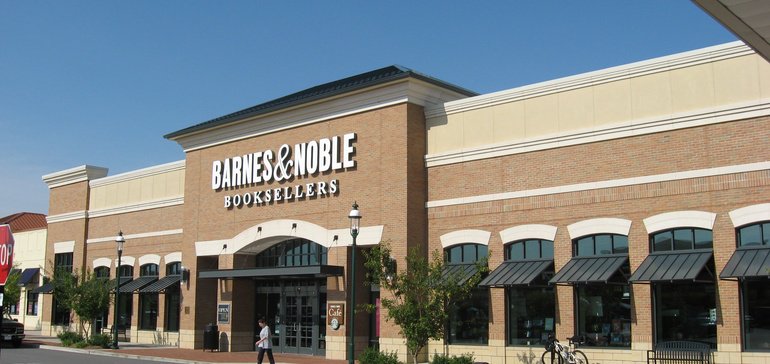Dive Brief:
- Barnes & Noble is laying off an unspecified number of employees after a holiday season that saw sales drop off by more than 6%. “The company has been reviewing all aspects of the business, including our labor model,” a company spokesperson said in an email. “Given our sales decline this holiday, we’re adjusting staffing so that it meets the needs of our existing business and our customers.”
- In some cases, employees including cashiers, digital heads and others came to work only to learn they were laid off, according to a report from CNBC, citing unnamed sources. Neither the company nor CNBC said how many workers are affected. In a regulatory filing, the bookseller said it would pay around $11 million in severance and other costs related to the layoffs. The company expects to save about $40 million annually from the labor cuts.
- Meanwhile, the bookseller appointed Timothy Mantel, former GNC merchandising chief, as the company’s new Chief Merchandising Officer on Monday. Mantel also served previously as senior vice president of food and household essentials at Target, according to a company press release
Dive Insight:
Barnes & Noble had the unenviable task of releasing a difficult quarterly report right after Thanksgiving. With sales trends in non-book categories tumbling, CEO Demos Parneros told analysts that it would turn back to its roots as a bookseller. “Going forward, we will place a greater emphasis on books, while further narrowing our non-book assortment,” he said, according to a conference call transcript from Seeking Alpha.
That didn’t move the needle much during the holiday months. The company’s book business at the holidays fell 4.5%. Declines in the gift, music and DVD categories accounted for nearly half of the same-store sales decrease, according to a company press release. For the holiday period, total sales ($953 million) and same-store sales each fell 6.4%, while online sales declined 4.5%, on lower traffic.
The layoffs at stores don’t surprise retail analyst Nick Egelanian, president of retail development consultants SiteWorks International.
“The largest retailer in the book sector has been quietly paring stores for some time as it struggles to remain relevant in an industry devastated by technology,” he said. “The fact is that books, like music and videos, can be sold electronically (without a package) making stores completely unnecessary for many customers. Despite these changes, Barnes and Noble has done little to update its store format to a smaller prototype to remain viable.”
In September Parneros said the company would be rationalizing its footprint, hoping to have more store openings than closures, including a smaller format that was almost ready, but “not quite there yet.” Stores could open in still-appealing markets where the retailer previously shuttered locations, as well as in areas without one, he told analysts, according to a transcript from Seeking Alpha.
Turning back to books is a departure from Barnes & Noble’s previous strategy of pumping up sales of gift and other non-literary items like toys, coloring books, music and sundries in order to diversify its assortment. But some of those hits, like the adult coloring book fad, were also found on discount at big box stores and drug stores. The retailer has also apparently depended on blockbuster single releases in music and literature, like Adele in 2015 and Harry Potter in 2016.
As it grasps for a way forward, Barnes & Noble has undergone a series of executive shake-ups, including electing four CEO’s in as many years, with Parneros arriving last July. Before his appointment the company was planning an elevated restaurant concept for four of its stores, an effort launched under CEO Ronald Boire, who left the position in 2016 after less than a year. Also in July, activist hedge fund Sandell Asset Management announced it had taken a “meaningful” stake in Barnes & Noble and urged the big-box book retailer in a letter to sell itself or go private.

